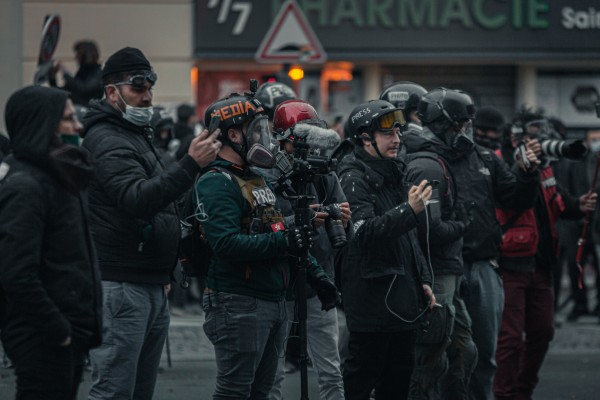A Turkish court has issued a one-month publication ban against pro-Kurdish weekly newspaper Demokratik Vatan for allegedly spreading terrorist propaganda, news website Bianet reported today.
The court reportedly based its decision on an issue that included articles titled “Our martyrs are the proof of our war of liberation”, “Month of martyrs” and “The names of the HPG (Hêzên Parastina Gel/People’s Defense Force) guerrillas have been released”.
Bianet said the court considered the articles “announcements” of the banned Kurdistan Workers’ Party (PKK) and that it ordered all copies seized. The court also opened an investigation into Chief Editor Arafat Dayan.
IPI Press Freedom Manager Barbara Trionfi said: “Blanket censorship such as this is a clear violation of press freedom and against the principles of democracy. Bans on publications are never an acceptable response to objections to content and we urge Turkey’s Parliament to amend current anti-terror law to end these types of bans.”
Turkish Justice Minister Sadullah Ergin said in late March following the issuance of a similar, one-month publication ban against daily newspaper Özgür Gündem that a judicial reform package pending before Parliament would do just that. The ban on Özgür Gündem was reversed within days and IPI and its affiliate, the South East Europe Media Organisation (SEEMO), today called for a similar reversal of the ban on Demokratik Vatan.
In related news, Bianet also said today that Turkey’s Council of State has banned the use on television of the term “guerrilla” to describe members of the PKK.
The decision reportedly stems from a 2009 CNN Türk broadcast that led the Radio and Television Supreme Council (RTÜK) to issue a warning penalty after it determined that use of the word constituted “broadcasting against national security”. An administrative court later cancelled the penalty, Bianet said, determining that “the word ‘guerrilla’ should not be assessed on its own, disregarding the integrity of the TV program”. The Council of State, however, disagreed, commenting: “The term ‘Guerrilla’ is used to refer to insurgents who are fighting for a legitimate purpose. The use of the term for members of the PKK is legitimizing the terrorists and the terrorism.”
The move stands in contrast to a recent decision in which Turkey’s court of last instance for reviewing criminal verdicts cited guarantees of freedom of expression in Turkey’s Constitution and in the European Convention on Human Rights to reverse prison sentences handed to Peace and Democracy Party (BDP) members Hatip Dicle and Selim Sadak. The pair was sentenced following an interview on pro-Kurdish channel Roj TV in which they used the word “guerrilla” to describe PKK members and referred to imprisoned PKK founding member Abdullah Öcalan as “sayın”, which means “Mr.” or “esteemed”.


